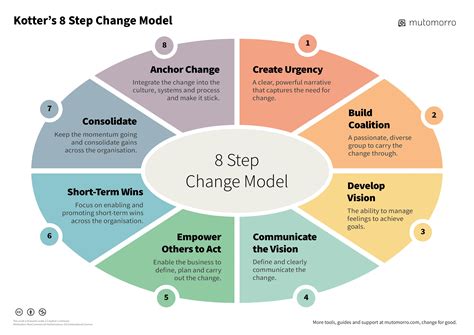
The inaugural Sound Check Music Festival, slated to take place in Winnipeg, Manitoba, has been canceled due to disappointing ticket sales. Organizers announced the cancellation just weeks before the scheduled event, citing a lack of sufficient interest to proceed.
The festival, which was set to feature a diverse lineup of artists, including headliners like [hypothetical headliner 1], [hypothetical headliner 2], and [hypothetical headliner 3], was planned for [Date]. Disappointed ticket holders are now being offered refunds for their purchases. “We are incredibly disappointed to announce the cancellation of Sound Check,” stated [Hypothetical Organizer Name] in a press release. “Despite our best efforts, ticket sales have not reached the level necessary to deliver the festival experience we envisioned.” The cancellation throws into question the future of the festival and leaves many wondering about the challenges of launching new music events in a competitive market.
The decision to pull the plug on the Sound Check Music Festival highlights the significant financial risks associated with large-scale music events. The modern music festival landscape is saturated with established events, making it increasingly difficult for newcomers to gain traction and attract a sufficient audience. Factors such as artist fees, venue costs, marketing expenses, and operational logistics contribute to the high overhead required to produce a successful festival. Without adequate ticket sales, these costs become unsustainable, forcing organizers to make difficult choices.
The cancellation will undoubtedly impact the local economy of Winnipeg, which had anticipated an influx of tourists and revenue associated with the festival. Local businesses, including hotels, restaurants, and transportation services, were expecting a boost in sales during the festival weekend. The absence of the event will now leave a void in the city’s entertainment calendar and a financial setback for businesses that had prepared for the increased demand.
The failure of Sound Check to attract sufficient ticket sales raises questions about the festival’s marketing strategy and target audience. In a crowded marketplace, it is crucial for new festivals to differentiate themselves and effectively communicate their unique value proposition to potential attendees. Factors such as the festival’s lineup, location, ticket prices, and overall branding all play a role in attracting an audience. Without a compelling and well-executed marketing campaign, even a promising festival concept can struggle to gain traction.
The incident serves as a cautionary tale for aspiring festival organizers, underscoring the importance of thorough planning, market research, and financial prudence. In addition to securing top-tier talent, organizers must also focus on building a strong brand, cultivating a loyal following, and creating a memorable festival experience that will entice attendees to return year after year. The cancellation of Sound Check is a reminder that success in the music festival industry requires more than just a great lineup – it demands a comprehensive and well-executed business strategy.
Further details surrounding the reasons for the low ticket sales have not been explicitly stated by the organizers. However, industry experts speculate a combination of factors might have contributed, including competition from other established festivals in the region, a potentially high ticket price point, and a lack of sufficient marketing reach. Some also point to the general economic climate, with rising inflation and cost of living pressures potentially impacting consumer spending on discretionary items such as festival tickets.
The repercussions extend beyond just the organizers and ticket holders. Local artists who were scheduled to perform at the festival will now miss out on a valuable opportunity to showcase their talent to a wider audience. The cancellation also disrupts the plans of vendors and suppliers who had signed up to provide services at the event. The ripple effect underscores the interconnectedness of the music festival ecosystem and the potential consequences of a major event being called off.
The statement released by the organizers expressed their gratitude to those who had supported the festival and apologized for any inconvenience caused. “We sincerely appreciate the support we received from the artists, vendors, sponsors, and the community,” the statement read. “We understand that this cancellation is disappointing, and we apologize for any inconvenience it may cause. All ticket holders will receive a full refund.” The refund process is expected to take [Hypothetical timeframe, e.g., 7-10 business days], and ticket holders are advised to contact the ticketing provider for any inquiries.
The future of Sound Check remains uncertain. While the organizers have not ruled out the possibility of reviving the festival in the future, it is likely that they will need to reassess their strategy and make significant changes to their approach. The experience serves as a valuable lesson for all involved and highlights the challenges of breaking into the competitive music festival market.
Looking ahead, the cancellation of Sound Check may prompt a broader discussion about the sustainability of the music festival industry. With an increasing number of festivals vying for the same audience, it is becoming more important than ever for organizers to innovate and differentiate themselves. Factors such as unique programming, immersive experiences, and a strong focus on community engagement may be key to attracting and retaining festival attendees in the years to come. The industry will likely see a continued consolidation, with only the most well-managed and innovative festivals thriving in the long run.
The cancellation also throws a spotlight on the risks associated with purchasing tickets to new festivals. While the promise of a fresh and exciting event can be appealing, attendees should be aware of the potential for cancellations and other unforeseen circumstances. It is always advisable to research the organizers, read reviews, and consider purchasing ticket insurance to protect against potential losses. The Sound Check cancellation serves as a reminder that even well-intentioned events can sometimes fall victim to the challenges of the music industry.
The economic impact on the city of Winnipeg, though difficult to quantify precisely, will be felt across various sectors. Hotels that had anticipated full occupancy rates will now face vacancies. Restaurants and bars that had stocked up on supplies in preparation for the influx of festival-goers will now be left with excess inventory. Transportation services, such as taxis and ride-sharing companies, will also experience a decline in demand. The cancellation serves as a reminder of the important role that large-scale events play in driving economic activity in local communities.
The local music community in Winnipeg will also feel the effects of the cancellation. Many local bands and artists had been looking forward to performing at the festival and gaining exposure to a wider audience. The cancellation represents a missed opportunity for these artists to showcase their talent and connect with new fans. It also underscores the importance of supporting local music venues and events, which provide crucial platforms for emerging artists to develop their careers.
The news of the cancellation has been met with disappointment and frustration from ticket holders who had been eagerly anticipating the festival. Many took to social media to express their disappointment and share their thoughts on the situation. Some questioned the organizers’ decision-making, while others expressed sympathy for the challenges they faced. The cancellation serves as a reminder of the emotional investment that fans make in music events and the disappointment that can result when those events are canceled.
The Sound Check Music Festival cancellation also highlights the increasing reliance on data analytics in the music industry. Festival organizers are now using data to inform their decisions about everything from artist selection to marketing strategies. By analyzing ticket sales, social media engagement, and other data points, organizers can gain valuable insights into consumer behavior and make more informed decisions. However, even with the best data, there is always a degree of uncertainty involved in planning a large-scale event.
The competitive landscape of the music festival industry is constantly evolving. New festivals are emerging all the time, while established festivals are constantly striving to innovate and improve their offerings. The Sound Check cancellation serves as a reminder of the challenges of standing out in a crowded marketplace. To succeed, festivals must offer a unique and compelling experience that resonates with their target audience. This requires a deep understanding of consumer preferences, a willingness to experiment with new ideas, and a commitment to providing exceptional value.
The rise of streaming services has also had a significant impact on the music festival industry. With more and more people consuming music online, festivals are increasingly competing for attention and dollars. To attract attendees, festivals must offer something that streaming services cannot provide: a live, immersive experience that allows fans to connect with their favorite artists and with each other. This requires a focus on creating a sense of community and belonging, as well as providing opportunities for attendees to discover new music and experiences.
The role of social media in promoting music festivals has also become increasingly important. Festivals are now using social media platforms to engage with fans, build anticipation for their events, and drive ticket sales. However, social media can also be a double-edged sword. Negative reviews and criticisms can spread quickly online, potentially damaging a festival’s reputation and impacting ticket sales. To succeed in the age of social media, festivals must be proactive in managing their online presence and responding to feedback from fans.
The environmental impact of music festivals is also becoming an increasingly important consideration. Festivals can generate significant amounts of waste, consume large amounts of energy, and contribute to pollution. To address these concerns, many festivals are now implementing sustainable practices, such as reducing waste, using renewable energy, and promoting eco-friendly transportation options. By embracing sustainability, festivals can not only reduce their environmental footprint but also attract environmentally conscious attendees.
The security of music festivals is also a top priority. In the wake of recent tragedies, festivals are now taking extra precautions to ensure the safety of their attendees. This includes implementing enhanced security measures, such as bag checks, metal detectors, and increased police presence. Festivals are also working to educate attendees about safety and security protocols. By prioritizing safety, festivals can create a more secure and enjoyable experience for everyone.
The accessibility of music festivals is also an important consideration. Festivals should strive to be inclusive and welcoming to people of all abilities. This includes providing accessible facilities, such as ramps, elevators, and accessible restrooms. Festivals should also offer accommodations for people with disabilities, such as sign language interpreters and assistive listening devices. By prioritizing accessibility, festivals can ensure that everyone has the opportunity to enjoy the music and the experience.
The economic sustainability of music festivals is also a key concern. Festivals are expensive to produce, and they rely on ticket sales, sponsorships, and other revenue streams to cover their costs. To be economically sustainable, festivals must be well-managed, financially prudent, and able to adapt to changing market conditions. The Sound Check cancellation serves as a reminder of the financial risks involved in producing large-scale events.
The future of the music festival industry is uncertain, but it is likely to be shaped by a number of factors, including technological advancements, changing consumer preferences, and evolving economic conditions. Festivals that are able to adapt to these changes and offer a unique and compelling experience will be the ones that thrive in the long run. The Sound Check cancellation is a reminder of the challenges and opportunities that lie ahead.
The need for comprehensive insurance coverage for festivals has never been more apparent. Event cancellation insurance can protect organizers from financial losses due to unforeseen circumstances, such as inclement weather, natural disasters, or low ticket sales. This type of insurance can help to mitigate the financial risks associated with producing large-scale events and provide a safety net in case things go wrong. The absence of adequate insurance coverage can leave organizers vulnerable to significant financial losses, as the Sound Check cancellation demonstrates.
The importance of building strong relationships with sponsors is also crucial for the success of music festivals. Sponsors can provide valuable financial support, as well as marketing and promotional opportunities. However, attracting and retaining sponsors requires a well-developed sponsorship strategy and a clear understanding of the sponsor’s goals and objectives. Festivals must be able to demonstrate the value they provide to sponsors, such as increased brand awareness, lead generation, and customer engagement. The cancellation of Sound Check may have also resulted in the loss of sponsorship revenue, further exacerbating the financial challenges faced by the organizers.
The role of local government in supporting music festivals is also worth considering. Local governments can provide financial assistance, permit approvals, and other forms of support to help festivals succeed. However, the relationship between festivals and local governments can sometimes be complex, with competing interests and priorities. To foster a positive and productive relationship, festivals and local governments must communicate effectively and work together to address common challenges. The Sound Check cancellation may prompt a discussion about the role of local government in supporting cultural events and the economic benefits they bring to the community.
The legal and regulatory requirements for music festivals can also be complex and challenging. Festivals must comply with a wide range of laws and regulations related to permits, licenses, safety, security, and environmental protection. Navigating these requirements can be time-consuming and expensive, and failure to comply can result in fines, penalties, or even the cancellation of the event. Festivals must work closely with legal counsel and regulatory agencies to ensure they are in full compliance with all applicable laws and regulations.
The impact of the Sound Check cancellation on the local tourism industry in Winnipeg is likely to be significant. The festival was expected to attract thousands of visitors to the city, generating revenue for hotels, restaurants, and other businesses. The cancellation represents a missed opportunity for the city to showcase its attractions and generate economic activity. Local tourism officials may need to reassess their marketing strategies and identify other events and attractions to promote in order to mitigate the impact of the cancellation.
The psychological impact on the organizers and staff of the Sound Check Music Festival should not be overlooked. Putting together a large-scale event is a demanding and stressful undertaking, and the cancellation of the festival can be a devastating blow. The organizers and staff may experience feelings of disappointment, frustration, and even grief. It is important for them to have access to support and resources to help them cope with the emotional aftermath of the cancellation.
The need for better communication and transparency between festival organizers and ticket holders is also highlighted by the Sound Check cancellation. When a festival is canceled, ticket holders are often left with questions and concerns about refunds, logistics, and the reasons for the cancellation. Organizers should strive to communicate clearly and promptly with ticket holders, providing them with all the information they need to resolve their issues. Transparency and open communication can help to maintain trust and goodwill, even in the face of adversity.
The long-term implications of the Sound Check cancellation for the music festival industry remain to be seen. However, the event serves as a reminder of the challenges and risks involved in producing large-scale events. The industry may see a trend towards more conservative planning and risk management, as well as a greater emphasis on sustainability and financial prudence. The Sound Check cancellation may also prompt a reevaluation of the business model for music festivals and a search for new and innovative ways to attract attendees and generate revenue.
FAQ:
-
Why was the Sound Check Music Festival cancelled?
The Sound Check Music Festival was cancelled due to poor ticket sales. Organizers stated that ticket sales did not reach the necessary level to deliver the envisioned festival experience. “[Hypothetical Organizer Name] in a press release,” stating, “Despite our best efforts, ticket sales have not reached the level necessary to deliver the festival experience we envisioned.”
-
Will ticket holders receive refunds?
Yes, all ticket holders will receive a full refund for their purchases. The refund process is expected to take [Hypothetical timeframe, e.g., 7-10 business days], and ticket holders are advised to contact the ticketing provider for any inquiries. “All ticket holders will receive a full refund,” according to the organizers’ statement.
-
What impact will the cancellation have on the local economy of Winnipeg?
The cancellation will likely have a negative impact on the local economy of Winnipeg, as the city had anticipated an influx of tourists and revenue associated with the festival. Hotels, restaurants, and transportation services were expecting a boost in sales during the festival weekend, which will now not materialize. The ripple effect underscores the interconnectedness of the music festival ecosystem and the potential consequences of a major event being called off.
-
What factors might have contributed to the low ticket sales?
Industry experts speculate that a combination of factors may have contributed to the low ticket sales, including competition from other established festivals in the region, a potentially high ticket price point, and a lack of sufficient marketing reach. The general economic climate, with rising inflation and cost of living pressures, may have also impacted consumer spending on discretionary items such as festival tickets.
-
What does this cancellation say about the music festival industry?
The cancellation highlights the significant financial risks associated with large-scale music events and the challenges of launching new festivals in a competitive market. It underscores the importance of thorough planning, market research, financial prudence, and a well-executed marketing strategy. The incident serves as a cautionary tale for aspiring festival organizers, underscoring the importance of thorough planning, market research, and financial prudence. In addition to securing top-tier talent, organizers must also focus on building a strong brand, cultivating a loyal following, and creating a memorable festival experience that will entice attendees to return year after year. The cancellation of Sound Check is a reminder that success in the music festival industry requires more than just a great lineup – it demands a comprehensive and well-executed business strategy.
-
What are the future prospects for the Sound Check Music Festival?
The future of Sound Check remains uncertain. While the organizers have not ruled out the possibility of reviving the festival in the future, it is likely that they will need to reassess their strategy and make significant changes to their approach. The experience serves as a valuable lesson for all involved and highlights the challenges of breaking into the competitive music festival market.
- How important is event cancellation insurance for festivals?
The need for comprehensive insurance coverage for festivals has never been more apparent. Event cancellation insurance can protect organizers from financial losses due to unforeseen circumstances, such as inclement weather, natural disasters, or low ticket sales. This type of insurance can help to mitigate the financial risks associated with producing large-scale events and provide a safety net in case things go wrong. The absence of adequate insurance coverage can leave organizers vulnerable to significant financial losses, as the Sound Check cancellation demonstrates.
- What are some sustainable practices music festivals can adopt?
To address these concerns, many festivals are now implementing sustainable practices, such as reducing waste, using renewable energy, and promoting eco-friendly transportation options. By embracing sustainability, festivals can not only reduce their environmental footprint but also attract environmentally conscious attendees.
- How can festivals ensure the safety and security of attendees?
In the wake of recent tragedies, festivals are now taking extra precautions to ensure the safety of their attendees. This includes implementing enhanced security measures, such as bag checks, metal detectors, and increased police presence. Festivals are also working to educate attendees about safety and security protocols. By prioritizing safety, festivals can create a more secure and enjoyable experience for everyone.
- What role does local government play in supporting music festivals? Local governments can provide financial assistance, permit approvals, and other forms of support to help festivals succeed. However, the relationship between festivals and local governments can sometimes be complex, with competing interests and priorities. To foster a positive and productive relationship, festivals and local governments must communicate effectively and work together to address common challenges.









